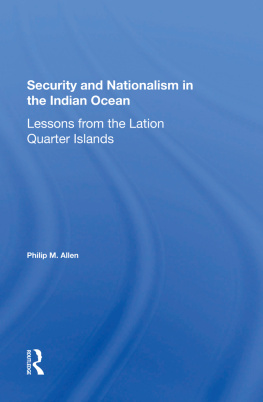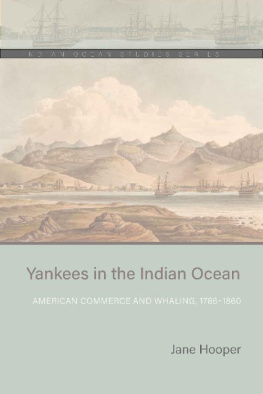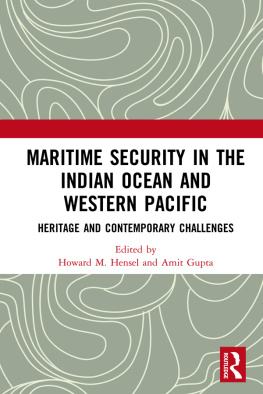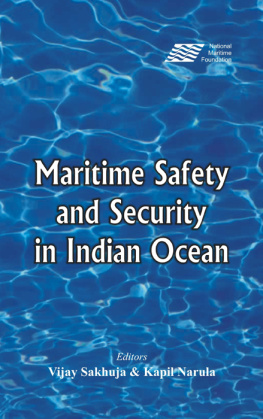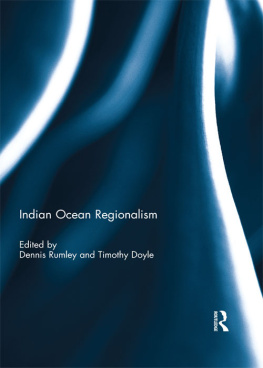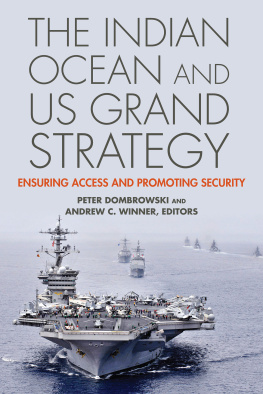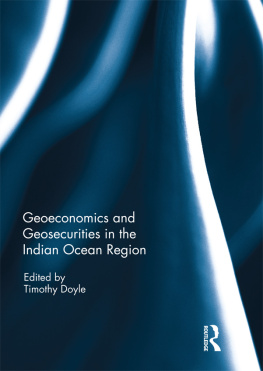Philip M Allen - Security and Nationalism in the Indian Ocean: Lessons From the Latin Quarter Islands
Here you can read online Philip M Allen - Security and Nationalism in the Indian Ocean: Lessons From the Latin Quarter Islands full text of the book (entire story) in english for free. Download pdf and epub, get meaning, cover and reviews about this ebook. year: 2019, publisher: Routledge, genre: Politics. Description of the work, (preface) as well as reviews are available. Best literature library LitArk.com created for fans of good reading and offers a wide selection of genres:
Romance novel
Science fiction
Adventure
Detective
Science
History
Home and family
Prose
Art
Politics
Computer
Non-fiction
Religion
Business
Children
Humor
Choose a favorite category and find really read worthwhile books. Enjoy immersion in the world of imagination, feel the emotions of the characters or learn something new for yourself, make an fascinating discovery.
- Book:Security and Nationalism in the Indian Ocean: Lessons From the Latin Quarter Islands
- Author:
- Publisher:Routledge
- Genre:
- Year:2019
- Rating:3 / 5
- Favourites:Add to favourites
- Your mark:
- 60
- 1
- 2
- 3
- 4
- 5
Security and Nationalism in the Indian Ocean: Lessons From the Latin Quarter Islands: summary, description and annotation
We offer to read an annotation, description, summary or preface (depends on what the author of the book "Security and Nationalism in the Indian Ocean: Lessons From the Latin Quarter Islands" wrote himself). If you haven't found the necessary information about the book — write in the comments, we will try to find it.
Philip M Allen: author's other books
Who wrote Security and Nationalism in the Indian Ocean: Lessons From the Latin Quarter Islands? Find out the surname, the name of the author of the book and a list of all author's works by series.
Security and Nationalism in the Indian Ocean: Lessons From the Latin Quarter Islands — read online for free the complete book (whole text) full work
Below is the text of the book, divided by pages. System saving the place of the last page read, allows you to conveniently read the book "Security and Nationalism in the Indian Ocean: Lessons From the Latin Quarter Islands" online for free, without having to search again every time where you left off. Put a bookmark, and you can go to the page where you finished reading at any time.
Font size:
Interval:
Bookmark:

52 Vanderbilt Avenue, New York, NY 10017
2 Park Square, Milton Park, Abingdon, Oxon OX14 4RN
Product or corporate names may be trademarks or registered trademarks, and are used only for identification and explanation without intent to infringe.
Allen, Philip M.
Security and nationalism in the Indian Ocean.
(Westview special studies in international relations)
Bibliography: p.
Includes index.
1. Indian Ocean RegionStrategic aspects. I. Title.
II. Series.
UA830.A45 1987 355'.0330182'4 86-9217
- PART ONE
INTRODUCTION - PART TWO
THE SOUTHWESTERN ISLANDS: LATIN QUARTER OF THE INDIAN OCEAN - PART THREE
PARADOXES OF SECURITY, REALITY OF POWER
- PART ONE
INTRODUCTION - PART TWO
THE SOUTHWESTERN ISLANDS: LATIN QUARTER OF THE INDIAN OCEAN - PART THREE
PARADOXES OF SECURITY, REALITY OF POWER
- ii
- iii
Johnson, Vermont, and
Constantine, Algeria
Introduction
Security and Authority in the Indian Ocean
Beyond the Cape of Hope, and now are past
Mozambic, off at sea north-east winds blow
Sabean odors from the spicy shore
Of Araby the Blest, with such delay
Well pleased they slack their course, and many a league
Cheered with the grateful smell old ocean smiles...
Font size:
Interval:
Bookmark:
Similar books «Security and Nationalism in the Indian Ocean: Lessons From the Latin Quarter Islands»
Look at similar books to Security and Nationalism in the Indian Ocean: Lessons From the Latin Quarter Islands. We have selected literature similar in name and meaning in the hope of providing readers with more options to find new, interesting, not yet read works.
Discussion, reviews of the book Security and Nationalism in the Indian Ocean: Lessons From the Latin Quarter Islands and just readers' own opinions. Leave your comments, write what you think about the work, its meaning or the main characters. Specify what exactly you liked and what you didn't like, and why you think so.

